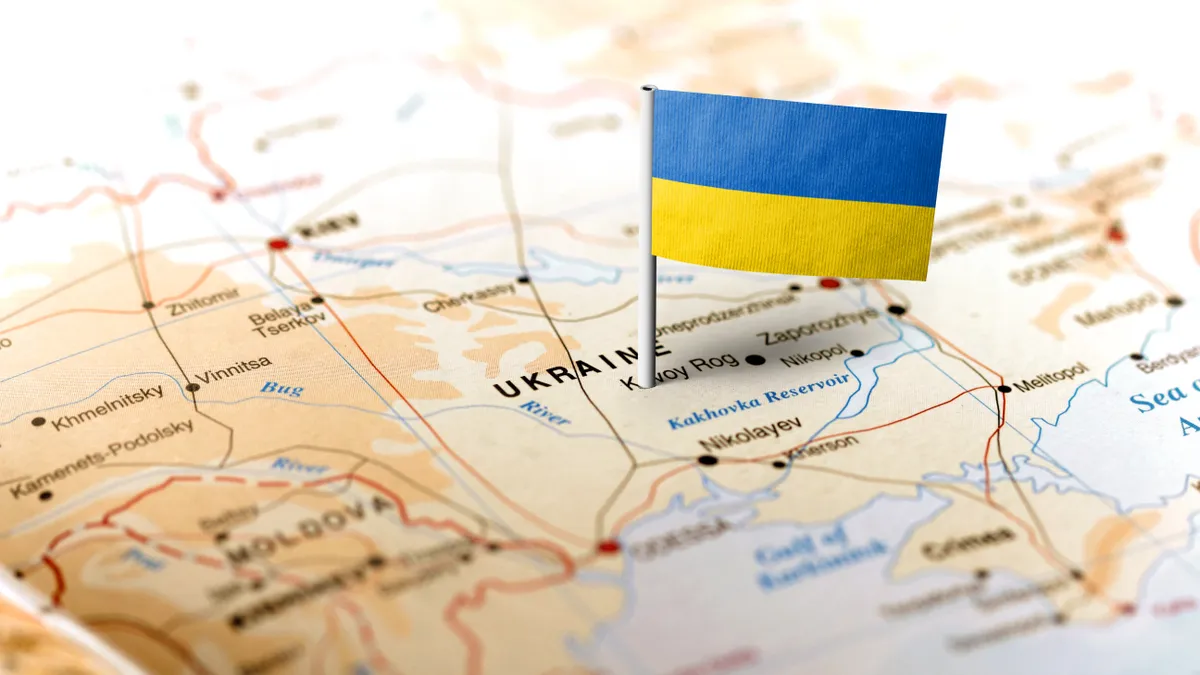Why should American financial officers care about the business impact of the Ukraine conflict? After all, Russia and Ukraine combined account for under 2% of global GDP, and relatively few U.S. companies have direct supply or partnership links with them.

Lou Longo
But this terrible war has huge implications — both immediate and longer-term — that are making every CFO sit up and take notice. All finance chiefs should stay well-informed and nimble in managing risks during this time.
Manage Supply Chain Disruptions
Russia’s invasion has sent the price of oil, wheat, and other crucial inputs soaring and exacerbated pandemic-related supply chain woes, threatening a further increase in inflation and borrowing costs.
The conflict is the latest reminder that CFOs need to diversify their supply chains and ensure redundancies and localized sourcing are built into the system to guard against shocks.
Western sanctions on Russia have frozen ships in ports, worsening the global logistics crunch. Airspace restrictions mean new routes need to be found for any goods that used to be flown over Russia, raising the costs of having far-flung operations and supplies.
Finance chiefs also need to avoid falling for the illusion they are immune from foreign volatility because their products are priced in U.S. dollars.
The war also reinforces the crucial importance of sound data systems that enable CFOs to drill down into their supply chains to understand where they have risks and opportunities. European vehicle makers like Porsche and Volkswagen Group, for example, have had to cut back on production due to shortages in wire harnesses that are sourced from Ukraine.
In this environment, CFOs should be alert to strategies such as paying a premium to become a preferred customer and securing the supply of certain products with high margins (and thus relatively low production quantity). At the same time, they need to be on guard against the panic-buying tendencies that can arise when supply shortages intensify. CFOs need to closely manage purchasing processes to ensure they don’t overpay for goods across the board and take losses on the back-end if prices tank.
Finance chiefs also need to avoid falling for the illusion they are immune from foreign volatility because their products are priced in U.S. dollars. Any company with a global supply chain is inherently vulnerable to the fluctuations in currency and input prices that this crisis is intensifying. That puts the onus on the CFO to manage treasury risks and closely monitor the company’s international contracts.
Protect the Company's Reputation
The Russia-Ukraine conflict doesn’t affect only companies with operations in Russia; it raises reputational and legal risks for any business with links to sanctioned entities or individuals.
CFOs need to be hyper-aware of where their company has business exposure to make decisions with the management team on how to limit risks where necessary. They can start by checking the U.S. Office of Foreign Assets Control list and subscribing to the updates on U.S. Treasury sanctions across the globe. Using that list, cybersecurity training firm INE, based in Cary, N.C., found two Russian business clients that were subject to sanctions by the United States.
CFOs also need to stay on top of cybersecurity, given the potential wave of Russian hacking attacks in response to sanctions and the generally low level of preparedness among U.S. firms. Now would be an excellent time to undertake a full cybersecurity audit and closely monitor any system traffic emanating from Russia and Ukraine.
Stay Informed
Of longer-term significance, the Ukraine invasion has raised geopolitical tensions. The event likely signals a new era of greater political risk and friction between regional trading blocs. This makes it more important for CFOs to be well-versed in what’s happening worldwide.
Finance leaders should get their information from a wide range of sources and not be limited by the often myopic U.S. media lens. This becomes even more crucial at a time when the pandemic still limits international travel, making it difficult for CFOs and other managers to get a feel for what’s happening on the ground.
Not long ago, Russia was part of the BRIC (Brazil, Russia, India, China) group of potentially high-growth, investor-friendly economies that were heavily hyped. Having a deeper understanding of Russia’s underlying politics and power dynamics would have helped companies avoid expensive entanglements there that have become problems today. If companies learn the right lessons from this crisis, they’ll be better prepared for the future — in Eastern Europe and other geopolitical hotspots.
Lou Longo is a partner and leader of the international consulting practice at Plante Moran.












